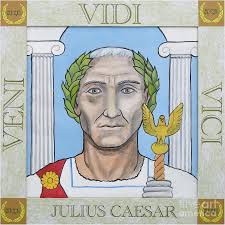Spartans and their verbal austerity
By Frederick Mordi
“Brevity,” Polonius once said in Shakespeare’s famous work, Hamlet, “is the soul of wit.” The ancient Spartans, who are known for their simple habits, bravery and unequalled brevity in the use of words, amply demonstrated this witty saying. Their words are short and sharp just like their swords.
Spartans were expected to always hit the nail on the head. In fact, it is said that a Spartan boy, who is too verbose, while responding to a teacher’s question, was liable to have his thumb bitten as punishment for wasting words. Spartan women also reportedly gave a departing warrior his shield with the words: “With it or on it!” This implies that he should return either victorious with his shield, or with his dead body upon it, but by no means, should he lose it.
Their legendary reputation for verbal austerity even in the face of danger, is succinctly captured by a famous anecdote about King Philip of Macedonia and the Spartans. As the story was told, Philip, who had conquered almost all of Greece, except Sparta, once assembled a great army to fight the Spartans. Positioning his large army at the borders of Laconia, the city of the Spartans, Philip issued the following ultimatum:
“If you do not submit at once, I will invade your country. And if I invade, I will pillage and burn everything you hold dear. If I march into Laconia, I will level your great city to the ground.”
Living up to their reputation for not wasting words, the Lacons, as the Spartans were sometimes called, sent Philip an answer a few days later, with a single word: “If.”
That single word was powerful enough to frighten the Macedonians, who turned tail. After this, neither Philip nor his son Alexander the Great, attempted to invade the Spartans anymore.
Similarly, Plutarch recounted how Philip had asked the Spartans if they wanted him to come as friend or foe. “Neither!” returned the Spartans, who certainly did not know how to beat about the bush. On another occasion, Philip was said to have sent them a long list of demands, to which they wrote at the bottom of the letter, the single word, “No!” Their short answers have found their way into the dictionary. Today, a short answer is often described as being ‘laconic,’ after Laconia, the name of their city.
While their great rivals, the more polished Athenians, pursued the art of oratory, producing renowned orators such as Demosthenes and Pericles, the Spartans viewed verbosity as a sign of triviality. The Samians learnt how to be economical with words, when after making a very long speech, soliciting for aid, they became deeply perplexed over the Spartans’ remarks that they could no longer remember the first half of their speech, and could make nothing of the remainder. The next time the Samians met with them, they simply showed a bag which they had brought with them, saying: “The bag wants flour.” It was only then the Spartans gave them aid.
But, Socrates, a renowned Greek philosopher, believed Spartans’ economy with words was simply a ruse:
“They conceal their wisdom, and pretend to be blockheads, so that they may seem to be superior only because of their prowess in battle … The Spartans are the best educated in philosophy and speaking: if you talk to any ordinary Spartan, he seems to be stupid, but eventually, like an expert marksman, he shoots in some brief remark that proves you to be only a child.”
For instance, when asked whether it would be prudent to build a defensive wall enclosing the city, a Spartan named Lycurgus, notably answered, “A city is well-fortified, which has a wall of men instead of brick.”
A laconic expression can be used for good effect to deflate a pompous individual, a well-known example being at the Battle of Thermopylae, where Leonidas, King of Sparta, in response to Xerxes’s offer to spare his men if they gave up their arms, replied “Molon labe,” which translates to “Come and take them!” The movie, 300, which featured the exploits of Leonidas (Gerald Butler), is replete with other pithy statements.
Julius Caesar’s famous words: “The die is cast!” (Alea iacta est in Latin), which he reportedly uttered when he led his army across the Rubicon in northern Italy, still resonate with many people today, due to its brevity.
The popular expression: “Veni, vidi, vici,” which translates to “I came, I saw, I conquered,” is also attributed to Caesar, who made the statement after his victory over King Pharnaces II of Pontus in the Battle of Zela.
But the shortest correspondence in history must be that between Victor Hugo, considered one of the greatest French writers, and his publisher, in 1862. Wondering how his novel Les Misérables, was being received, Hugo, who was on vacation, while his work was scheduled to be printed, reportedly telegraphed Hurst & Blackett the single-character message “?”
As the book was doing extraordinarily well in the market, the reply was a single “!”
The Spartans would have been proud of Hugo, who also wrote the classic novel: The Hunchback of Notre-Dame.
In modern times, a famous person reputed for his verbal austerity was American President Calvin Coolidge, who was nicknamed ‘Silent Cal.’ There is a story of how a woman once seated next to him at a dinner, said to him, “I made a bet today that I could get more than two words out of you.”
She did not win the bet as he characteristically replied: “You lose.”
“The words of a President have an enormous weight and ought not to be used indiscriminately,” Coolidge was once quoted as saying.
The Spartans have certainly proven that keeping one’s words straight and simple, is not only effective, but could also have dramatic consequences.





Recent Comments